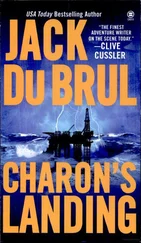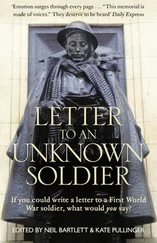“How do you know all this?”
“Imran told me. If you would ever do as I ask and sit up late with us, you’d have figured out that what he’s been drinking from that flask all day is whiskey. And when he’s drunk, he likes to chat. I’ve learned many things this way.”
“What do the girls do here?” As soon as he’d said it, Yacub wished he could unsay it.
Farhan looked at him. “They don’t have to pay the recruitment fees. They just turn up, apparently. And they are the ones who are making real money here in Dubai. Well, them and Imran.”
“Oh,” said Yacub. He felt a bit sick.
“Anyway, Imran was always saying that it turned out his night job was much more lucrative than his day job. So that’s what he’s doing, I reckon.”
“ Inshallah ,” Yacub said.
Farhan laughed.
The sun was high now. Most of the other workers had given up waiting for the bus and gone back indoors.
That was December. By April 2010, it had been four months since they were last paid. And in the camp, the water and electricity had been turned off in February.
Michael was in New York for meetings at the headquarters of his firm. Because of the downturn, these business trips had become rare over the past two years, so Michael was pleased to be in the city. He liked New York, and he missed coming over regularly. He’d flown in on Wednesday, been in meetings Thursday and Friday, at company dinners every night, so it wasn’t until he turned on the television in his hotel room on Saturday morning—oh, the pleasure of watching CNN in a hotel bedroom—that he saw the pictures of the ash cloud and watched the stories about people stranded around the world, unable to get home. It took him a while to realize that he was one of those people.
He had planned a day of shopping and wandering around the city before flying home to London that evening. He called the office assistant and asked her what she could do about rebooking his flight. “The ash will clear,” he said, “the planes will be flying again by tonight.” The girl laughed, and he was taken aback. Even so, he decided to proceed with his morning as though everything was normal. He always bought jeans when he was in New York, even though he never wore them at home, but his idea of himself as a jeans-wearer persisted. He had a shelf in his closet where he kept them neatly folded, in chronological order, from oldest to newest, and, coincidentally, from smallest to largest.
Jack had discovered the jeans recently. “Jesus, Dad,” he said, “what’s that about?”
Michael looked at the pile and felt a bit ridiculous. “That’s your inheritance, Son. Right there. Worth a fortune on eBay. Vintage.”
“Fuck,” he said now, not quite under his breath, when he realized his waist had expanded again. He was standing in the change room in his boxers and socks, shivering slightly. He asked the shop assistant to fetch him a larger size. Then his phone rang.
“There are no flights,” said the girl. “I managed to get through—the airspace shutdown shows no signs of lifting. They do not advise going to the airport.”
“Oh,” said Michael.
“I also phoned your hotel. I’m afraid you’ll have to check out, Mr. Smith. They’re fully booked.”
“Damn,” said Michael.
“I’ve called a few other hotels in the city, but they’re all full too. I’ll keep trying, but Mr. Evans has said that if we have no luck, I’m to send a car to take you to his place in Westchester this afternoon.”
Michael looked at the floor of the change room. Someone knocked and handed him a larger pair of jeans. The idea of spending even a single evening in the company of his American counterpart, Jeff Evans, in his Westchester home made Michael want to die. Spending social time with other actuaries was not his idea of fun.
“That’s kind of Jeff,” Michael said. “Please thank him for me.” Michael paused. He stared at the wall of the change room. Where to go? What to do? Canada, he thought. Marina. “I’ll go to Toronto. I’ve got a friend there.”
“Oh yeah,” said the young woman—Michael had no idea of her name—“I always forget you’re Canadian.”
He’d wait it out in Toronto. He’d go stay with Marina. His oldest friend, Marina. “Yes,” he said. “I’ll be fine. I’ll take the train. Or a bus. Or I’ll drive.” The idea of flying anywhere was no longer appealing.
“Would you like me to look into that for you?”
“Okay,” said Michael. “Thanks.” He put his BlackBerry into the pocket of his jacket and put on the enormous jeans. They fit perfectly. As he stood in line to pay, a message came through on his phone with a new itinerary: the assistant had booked a train to Buffalo that afternoon, a hotel in Buffalo that night, and the train through to Toronto the following morning.
Michael was going home to Canada. He’d lived abroad for so long that the word alone—“Canada”—was enough to tip him into a warm pool of nostalgia. Canada. And Marina.
Emily’s job as a television researcher kept her busy. The reality show market was as rapacious as always, and she had a knack for finding and persuading people to be filmed. She worked freelance, so she had to hustle for contracts, but she did all right. She was working on a new programme about the fattest people in Britain; it had renewed her enthusiasm for cycling. Her dad had alternated between being thrilled by her success in what he saw as the high-pressure cutthroat world of factual television, and working hard to stifle his disapproval of the content she worked on. “Freak show,” was his line. Part of her thought he was right, but it was a job, and she was good at it. She went back to work the day after her dad’s funeral. Several of her colleagues were stranded abroad, so her boss needed her to come in.
Emily knew her father wasn’t her birth father, she’d always known she was adopted. Her adoptive mother died when she was two years old, and she and her dad had been on their own since then. She’d wondered about her birth parents and from time to time had considered doing something to find them, but she’d always been secretly appalled by other people’s birth-parent-quest tales, proud of her and her adoptive father’s self-sufficiency. One of her first-ever jobs was on a show about birth siblings who’d grown up apart and who’d fallen in love with each other without knowing they were related—huge ratings hit. Her father had been dismayed by the programme, but it enabled her to raise the subject of whether she should look for her own birth parent.
“Well,” he’d said, “you’d have to go to social services and start the paperwork, I guess.”
“There will be records, won’t there?”
“Yes,” he said. “You’re allowed to request them—I believe the authorities will help you get in touch, if that’s what you want.” He cleared his throat and shifted in his seat. “You can probably do all that online these days.”
“You don’t want me to do this?” she asked.
He grimaced.
“Daddy,” she said—she hadn’t called him Daddy for a long time. She put her arms around him. He breathed into her hair.
That night, when she got home, she’d put “how to find your birth parents” into the search engine and clicked around the websites that came up. There were official forms to fill in. She opened one and began to input her details; she’d have to start from scratch—her father probably had her original birth certificate, but she didn’t want to ask him for it. She got halfway through the form and stopped. Starting the process would lead somewhere. There would be an outcome. There would be consequences. Her birth parents, whoever they were, wherever they were, would be told she was looking for them. They would respond—either by denying her request or by agreeing to it. She had lived her twenty-four years of life without them. If she clicked on Send, that would change.
Читать дальше












